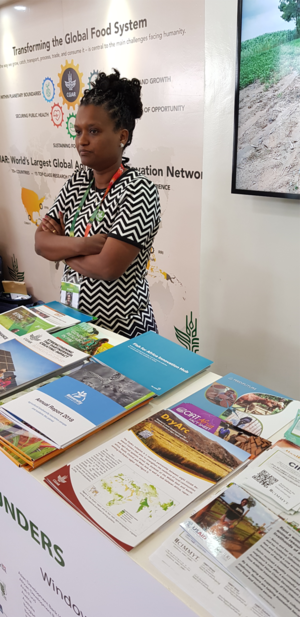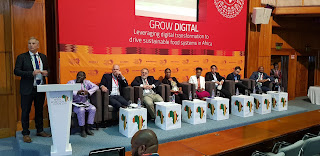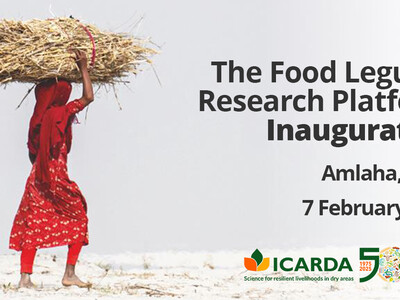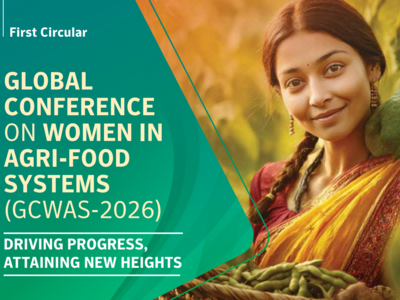African Green Revolution Forum
5 September 2019. 3 - 6 September 2019. The African Green Revolution Forum 2019.
The African Green Revolution Forum (AGRF) is considered the world’s most important and impactful forum for African agriculture, pulling together stakeholders in the agricultural landscape to take practical actions and share lessons that will move African agriculture forward.
First established in 2010, following a three-year series of African Green Revolution Conferences (AGRC) held in Oslo, Norway from 2006-2008, the AGRF has emerged as Africa’s leading “platform of agriculture platforms” that brings together a range of critical stakeholders in the African agriculture landscape to discuss and commit to programs, investments, and policies that can counter the major challenges affecting the agriculture sector on the continent.
Since the first AGRF was held in Ghana in 2010 under the leadership of H.E. President Mills, the Forum has annually brought together Heads of State, Ministers, business leaders, development partner leadership, researchers, thought leaders, farmer organization representatives, youth entrepreneurs, and other critical stakeholders to focus on the actions and policies needed to move the continental agenda forward.
CGIAR has recently become an official partner of AGRF. This gave the CGIAR System increased access to the development of the agenda for AGRF, as well as participation and contribution to thematic platforms that guide the development and design of AGRF activities.
Scaling Models for Agricultural Transformation
The African Development Bank (AfDB) in collaboration with Purdue University have launched a sourcebook on scaling up agricultural innovations, summarizing key insights, tools, examples, and references on designing for scale, assessing scalability, financing the scaling process, and the effective use of partnerships to support scaling.
 This session at the AGRF was an opportunity to officially release the Scaling Up Sourcebook, which collects the key lessons, best practices, outstanding challenges and the way forward.
This session at the AGRF was an opportunity to officially release the Scaling Up Sourcebook, which collects the key lessons, best practices, outstanding challenges and the way forward.- Mrs. Jennifer Blanke, Vice-President, Agriculture, Human and Social Development, African Development Bank
- Mr. Gerald Shively, Associate Dean and Director of International Programs in Agriculture, Purdue University
- Mr. Larry Cooley, President Emeritus of Management Systems International, and Curator of Global Community of Practice on Scaling Up Development Outcomes
- H.E. Jakaya Kikwete, Former President of Tanzania
- Amb. Ertharin Cousin, Distinguished Fellow, Global Agriculture, Chicago Council on Global Affairs
- Dr. Julie Howard, Adviser (Non-resident), Center for Strategic and International Studies
- Dr. Simeon Ehui, Regional Director, Sustainable Development for Africa, World Bank
- Dr. Nteranya Sanginga, Director General, IITA
- Mr. Khalid Bomba, CEO, Ethiopian Agricultural Transformation
- Mr. Stefan Schmitz, Federal Minister of Economic Cooperation and Development (BMZ), Germany
- Hon. Moulaye Ahmed Boubacar, Minister of Agriculture, Mali
- H.E. Ban Ki Moon, Co-Chair, Global Commission on Adaptation
- Dr. Akinwumi Adesina, President, African Development Bank
- Dr. Elwyn Grainger-Jones, Executive Director, CGIAR System Organization
- Mrs. Reeta Roy, President, Mastercard Foundation
- Mr. Qu Dongyu, Director General, FAO
- Dr. Gilbert Houngbo, President, IFAD
 The Scale Up Sourcebook is informed and inspired by the September 2018 conference, Innovations in Agriculture: Scaling Up to Reach Millions, organized by Purdue University, in partnership with the African Development Bank.
The Scale Up Sourcebook is informed and inspired by the September 2018 conference, Innovations in Agriculture: Scaling Up to Reach Millions, organized by Purdue University, in partnership with the African Development Bank.
- designing with scale in mind;
- assessing scalability;
- using commercial markets to drive scaling;
- financing the transition to scale;
- creating an enabling environment for scale;
- tailoring metrics, monitoring, and evaluation to support sustainable outcomes at scale;
- and the critical role of intermediary and donor organizations.
The Sourcebook provides guidance, tips, and examples, along with links and references to additional resources on scale up.
Can sub-Saharan Africa Become Self-Sufficient in Food
Chairs: AFAP, OCP and YARA with support of AfDB, AGRA, BMGF, Corteva, FAO, UPL, USAID and Syngenta
Even though SSA has a huge potential to increase food production on existing cropland it will be an enormous challenge for agriculture to achieve the required level of productivity to meet growing demand. Steep population growth and changing dietary preferences will quadruple maize demand. Can production keep up? At what cost to the environment? To achieve full food self-sufficiency will require, in addition to yield gap closure, contributions from increased cropping intensity (more than one harvest per year) and expansion of irrigated production area in regions that can support these options in a sustainable manner. If these intensification options are not realized, it will increase dependence on cereal imports and vast expansion of rainfed cropland area with severe consequences in terms of loss of biodiversity and increased greenhouse gas emissions due to land use change.
Moderator: Mr. Øystein Botillen, Stakeholder Relations and Business Development Manager, Yara
Keynote Speaker: Prof. Martin Van Ittersum, Professor Plant Production Systems, WaCASA, Wageningen University
Panel:
- Hon. Amie Fabureh, Minister of Agriculture, The Gambia
- Mr. Albin Hubscher, President and CEO, IFDC
- Dr. Rebbie Hawara, Head of Soil and Fertilizer Systems, AGRA
- Ms. Marie Claire Kalihangabo, Coordinator AFFM Secretariat, African Development Bank
- Mr. Emiliano Mroue, CEO, WARC Group Chairperson, Task force for Abuja
- Mr. Antonio Saraiva, Head of Business Sustainability, AME, Syngenta
- Dr. Christian Witt, Senior Program Officer for Soil Health, Bill and Melinda Gates Foundation
- How urgent is the need for an increased maize production in Africa?
- Is this a trade-off between higher production and higher CO2 emissions?
- Can the current modelling systems allow for seasonal forecasting?
- Would it be possible to foresee good years from bad years?
Using data from Burkina Faso, Ghana, Mali and Nigeria in West Africa and from Ethiopia, Kenya, Tanzania, Uganda and Zambia in East Africa, this research shows that average production of 1.7 t/ha of maize in 2010 must increase to 6.8 t/ha to meet estimated demand in 2050.




